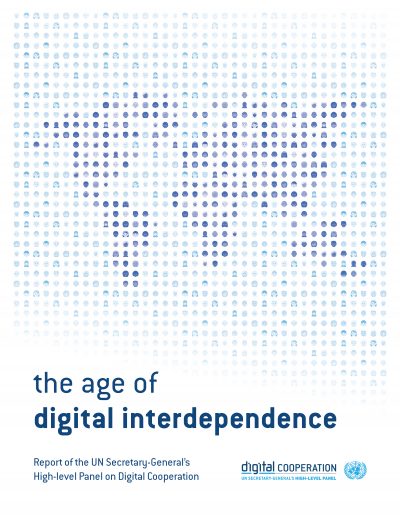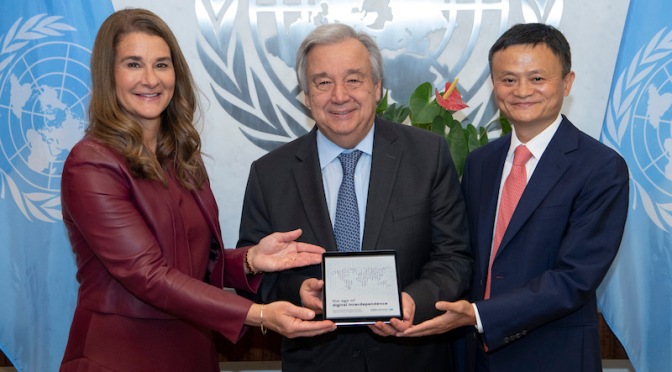The High-level Panel on Digital Cooperation launched its first report entitled The Age of Digital Interdependence. After 9-months of global consultation and deliberation, the Panel submitted the report to the UN Secretary-General on Monday June 11, 2019. Which hopes do this report and its recommendations bring to connected or unconnected youth, women and marginalized populations?

The High-level Panel on Digital Cooperation was established by the UN Secretary-General in July 2018 to identify good examples and propose modalities for working cooperatively across sectors, disciplines and borders to address challenges in the digital age. It comprises 20 members co-chaired by Jack Ma and Melinda Gates. Considering the unavoidable future impact of the digital society on young people and its effects on bridging the gender gap, the Panel includes several individuals under the age of 35, especially women, among them Hon. Bogolo J Kenewendo, the Minister of Investment, Trade and Industry of Botswana, Akaliza Keza Ntwari, tech entrepreneur and founding member of Girls in ICT Rwanda, and Nanjira Sambuli, Senior Policy Manager at the World Wide Web Foundation.
The report published this week, The Age of Interdependence, paints a picture of the interconnected nature of digital technology and policy impacts, and makes 5 recommendations for shaping our common digital future. It focuses on three broad sets of interlocking issues: building an inclusive digital future, protecting human rights, promoting digital trust & security, and fashioning a new global digital cooperation architecture.
Aspects targeting youth, women and marginalized populations are mainly in Chapter 2 entitled Leaving No One Behind, that assesses the contribution of digital technologies to the Sustainable Development Goals. It addresses issues including financial inclusion, affordable and meaningful access to the internet, the future of education and jobs and the need for regional and global economic policy cooperation. the Panel believes that digital cooperation must steer how digital technologies are developed and deployed to create meaningful economic opportunities for all. Following facts hightlights are made prior to the Panel’s recommendations:
Financial Inclusion: The ability of digital technologies to empower traditionally marginalised people and drive inclusive economic development is illustrated by financial inclusion mainly through mobile money, digital identification and e-commerce that have given many more people the ability to save and transact securely without needing cash, insure against risks, borrow to grow their businesses and reach new markets.
Data: The immense power and value of data in the modern economy can and must be harnessed to meet the SDGs, but this will require new models of collaboration.
Access to digital infrastructure: Even where getting online is possible and affordable, extra efforts are needed to empower groups that are discriminated against and excluded.
Education systems and lifelong learning: Modern schools were developed in response to the industrial revolution, and they may ultimately need fundamental reform to be fit for the digital age – but it is currently difficult to see more than the broad contours of the changes that are likely to be needed. Countries are still in early stages of learning how to use digital tools in education and how to prepare students for digital economies and societies.
Protecting workers, not jobs: New business models are fuelling the rise of an informal or “gig” economy, in which workers typically have flexibility but not job or income security. While the gig economy tends to make work less formal in industrialised countries, in the developing world the majority of people have long worked in the informal sector.
More about the report can be found here.


